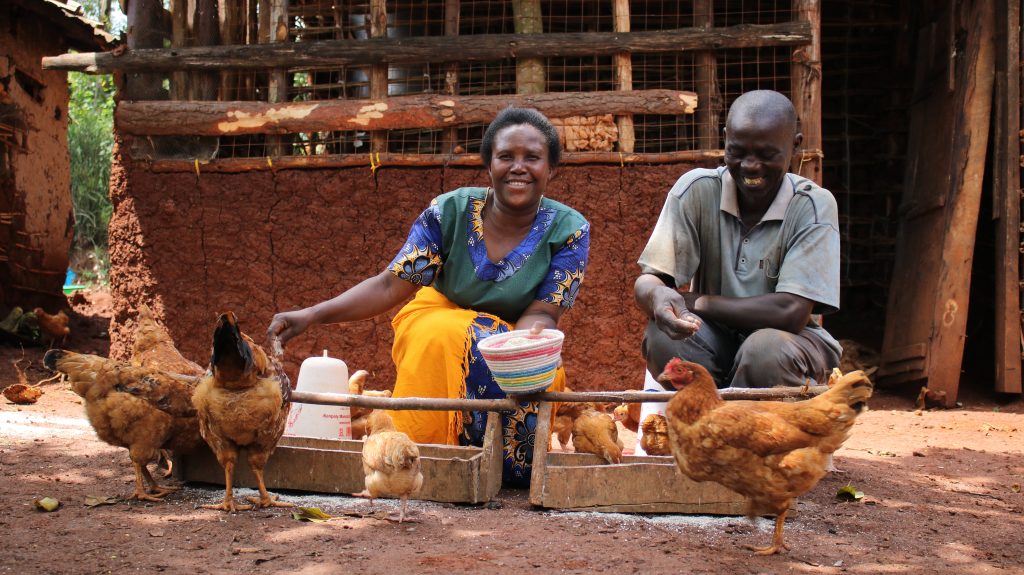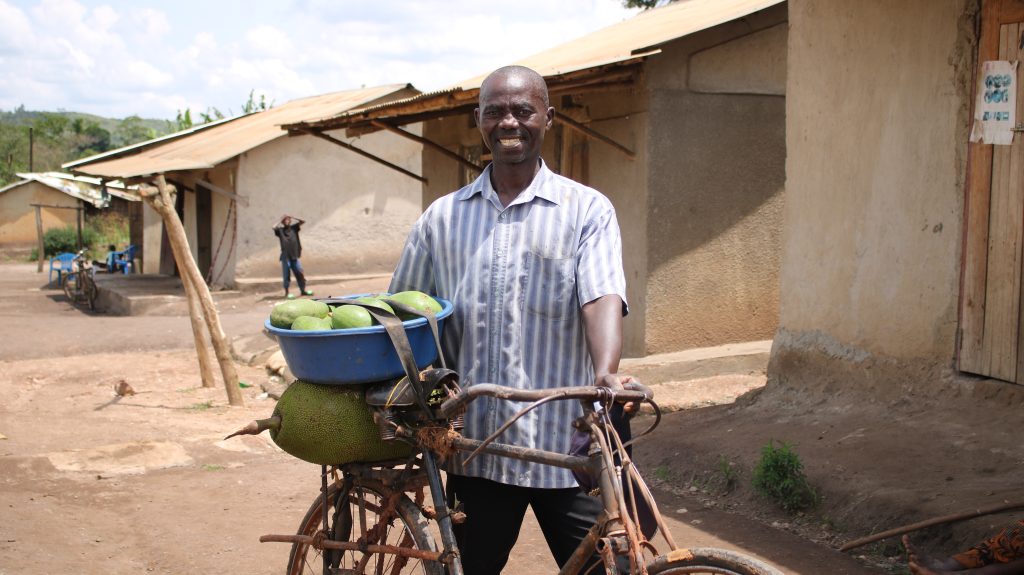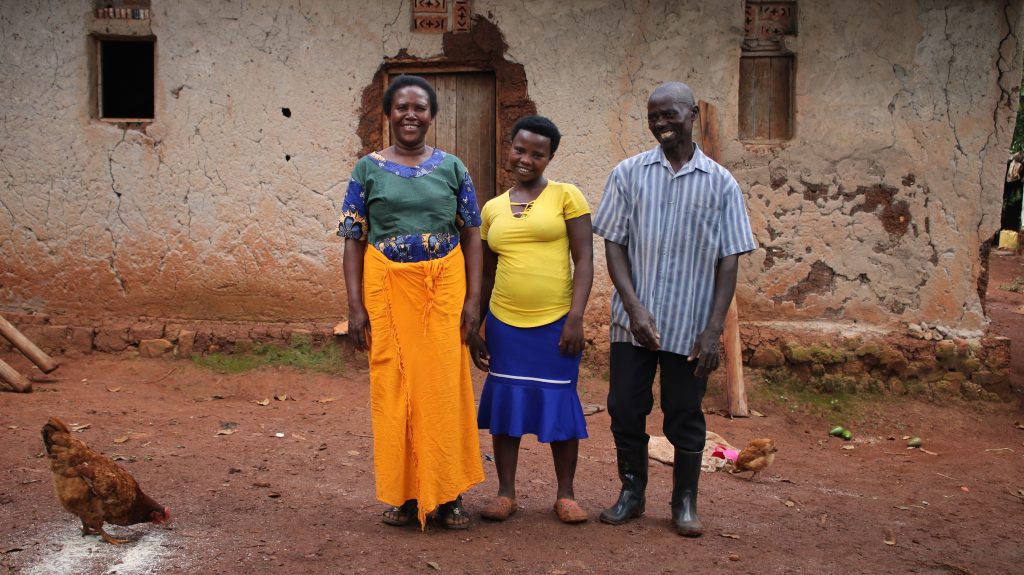Peace Besime, and Nsanze Sepiria first ventured into poultry farming a decade ago; the couple found it a better and less tedious source of income compared to casual laboring on people’s farms across Kamwenge District in South Western Uganda. Unfortunately, the proceeds from casual labor were barely enough to cater for their most basic needs such as medical expenses, school dues for their five children, and build them a decent shelter. It was this financial strain that nudged them toward setting up a poultry farm as a secondary source of income. However, their quick dash into poultry farming wasn’t as inspiring as they had anticipated.
For as long as we had been together (30 years) we made our living from farming either for ourselves or for the people who paid us a small amount of money. However, as our financial demands increased and our bodies grew weary, it became nearly impossible to endure the workload and so we decided to invest our savings in starting a poultry farm with 40 chickens
Nsanze narrates.
Although the couple had prior experience in selling and distributing farm produce, their hasty venture into poultry farming took them back to square one. They hadn’t received any formal training about how to cater for the birds, how to treat them, not to mention the financial management aspect of the farm. After months of trying and failing, the couple sold off the chickens due to a lack of feeds and shelter to stock them.

The financial loss from the failed poultry farm was consequential, it left them without savings and an ever-growing debt that they couldn’t service with their current sources of income.
“This was a tough time for us. We were both constantly worrying about money and the status of our future. This was a major source of our stress.” says Besime.
The light at the end of the tunnel for the struggling couple came in 2021, when their household was identified by local leaders in collaboration with AVSI and enrolled into the Graduating to Resilience Activity funded by the United States Agency for International Development with the aim of graduating extremely poor households from conditions of food insecurity and fragile livelihood to self-reliance and resilience.
As part of the program, the couple was assigned a Graduating to Resilience Activity coach and a trainer to build their knowledge on goal setting, business coaching, as well as good agronomic practices. With this enlightenment and skilling, their voyage to self-reliance began.
Besime received coaching, training in financial literacy, savings and business planning and management from her Tukwatanise (Let’s Unite) Village Saving and Loans Association group. Her household also received monthly consumption support – cash for food from which the family saved in part to replenish their financial security.
After two months of saving, they were able to raise UGX 110,000 (US$ 29) and reignited their poultry project, this time with only ten birds. The project was to be used to practice what they had learnt from their AVSI trainer in preparation for receipt of asset transfer, a business startup capital from the Activity to grow, expand and diversify their chosen business.

Their experience with the chicken and the startup management for three months showed positive progress and the couple was ready to scale up their business. In October 2022, Besime and Nsanze drew a project business plan that was vetted by their trainer and upon approval received an asset transfer – a business cash support worth UGX 1,000,000 (US$ 272) that they used to buy drinkers, feeders, and to build their chicken coop which now accommodates forty chickens.
‘’We have used part of the income from the poultry and part savings to buy a heifer – for milk. We expect to recover the funds invested in the birds in the first quarter of 2023. Nsanze and I no longer have to spend any cash on construction or feeders and drinkers’’. Besime delightfully exclaimed.
The couple is more hopeful than ever that their family is able to sustainably meet basic needs, cater for their children’s nutrition and education. They also jointly sell fruits from their garden to supplement their income. Nsanze carries the fruits on his bicycle from home and Besime takes charge of the sales.
‘‘Working together is fun and productive,” says Besime. ‘‘We now plan to renovate our house and purchase more land for our farm.” Nsanze happily remarked.
Like Besime and Nsanze’s household, 6,823 other families have received similar support through the project which is implemented by AVSI in consortium with Trickle Up and American Institutes for Research and works with 288 Village Saving and Loans Associations in Kamwenge District.

ABOUT:
Graduating to Resilience is a USAID Bureau for Humanitarian Assistance-funded Activity led by AVSI Foundation in partnership with American Institute for Research and Trickle Up. The seven-year program (2018 to 2024) operational in Kamwenge District seeks to test the Graduation Approach’s ability to graduate 13,200 economically active but ultra-poor refugee and host community households unable to meet their basic needs consistently without some form of assistance. The program will engage households in two cohorts.
